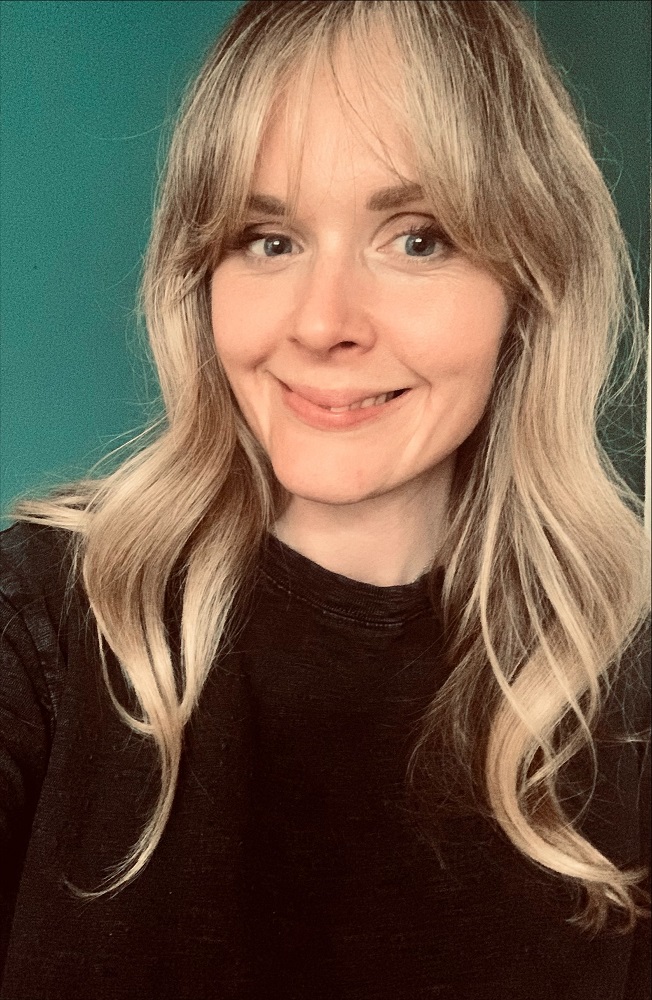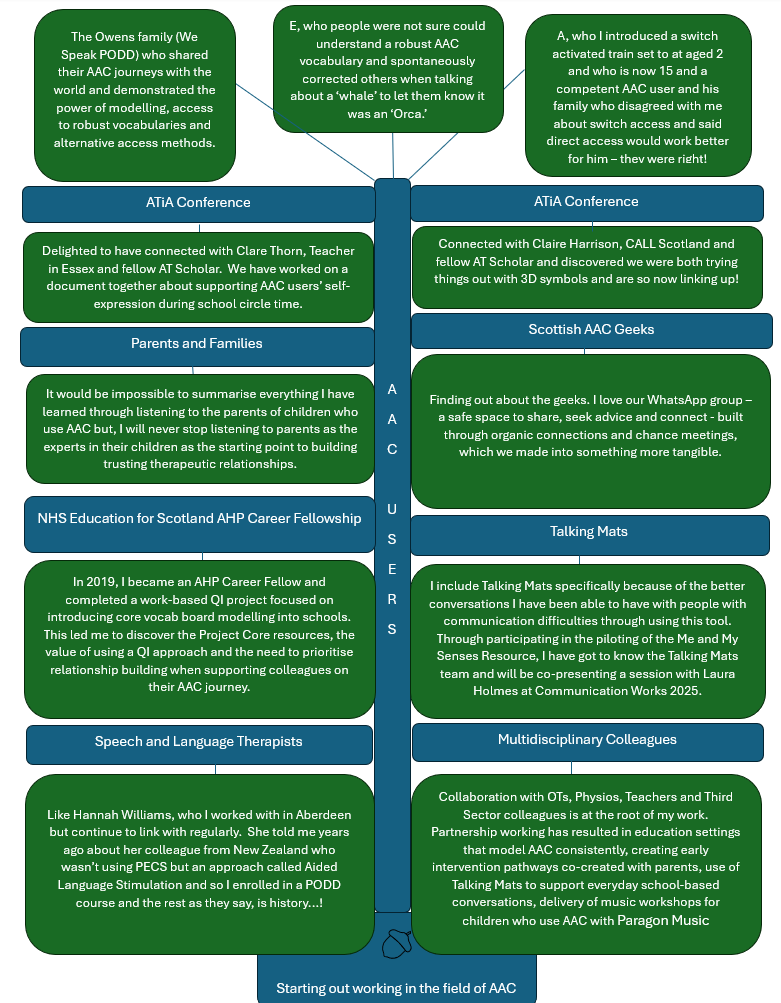Speech and Language Therapist
AT Scholar 2025 (Virtual Attendee)
One of the things I often reflect on as a Speech and Language Therapist is the direction in which my career, knowledge, skills and values have been shaped because of the people I have connected with over the past 20 years. When the opportunity to apply for the British Assistive Technology Scholarship arose last year, the knowledge that if I was successful in becoming an AT Scholar, that I would undoubtedly foster new professional relationships and therefore broaden my knowledge and understanding within the AT field, was a key motivator in pressing the ‘submit’ button.
The growth and development within the AT and AAC fields is incredibly exciting ; I take the responsibility of ensuring that my team and I keep up to date with these developments very seriously. Next week, our small AAC team will meet for a CPD day and I will share with them my learning from the Assistive Technology Industry Association (ATiA) Conference, which I attended virtually, though it took place in Orlando, Florida. We will reflect on it together and plan changes and new initiatives that we might make to our service as a result. Thus, a new connection is made: between Florida, USA and Dumfries & Galloway. We strongly believe that the Children and Young People living in the rural communities we serve within the southwest of Scotland, should have equal access to the most current AT and AAC technology, advancements and advice. As Roald Dahl’s Matilda said “..you mustn’t let a little thing like ‘little’ stop you.”
When thinking about a focus for this blog, the notion of an ‘AAC Family Tree’ came to me and I thought it would be interesting to map it out. As soon as I started, I realised that it was not an easy task to create a succinct visual representation of a meandering nearly two-decade journey (particularly when trying to make Word document ‘shapes’ look like a tree and fit in an A4 page!) I need an AAC Family Forest really! However, it is summarised below to include relationships that have had a significant impact and anonymised appropriately.
If I could pass advice on to any professional starting out within the world of AAC, I would say: actively seek connection, enthusiastically build relationships and importantly cross professional boundaries. Through these connections, seek to find out what you do not yet know. I am constantly humbled by the knowledge others hold and always so grateful for opportunities that mean I can keep learning and improving my practise as an SLT.
As a direct result of being an AT Scholar I have made a connection with Clare Thorn, who also attended the conference virtually. We chatted on the phone after the conference and reflected on enjoying a presentation about using AAC to support self-expression. We took our learning and translated it into a document full of ideas about incorporating opportunities for developing self-expression within school circle times. I have also linked with Claire Harrison who attended the conference as an AT Scholar in person and we discovered that we were both exploring using 3D symbols with the children we work with and so, a new connection has begun – watch this space!
I will continue to nurture my AAC Family Tree and hope that it continues to strengthen and grow over many more years. Could your next branch be an application to the AT Scholar programme in 2026? I would highly recommend it as a learning and connection opportunity.
Links for more information from the tree:
We Speak PODD: Youtube playlist
ATiA Conference: www.atia.org/conference
Scottish AAC Geeks: www.talkingwithtech.org/episodes/ceanna-macgregor-melanie-boyle
Project Core: www.project-core.com
Talking Mats: www.talkingmats.com
Paragon Music www.paragon-music.org


